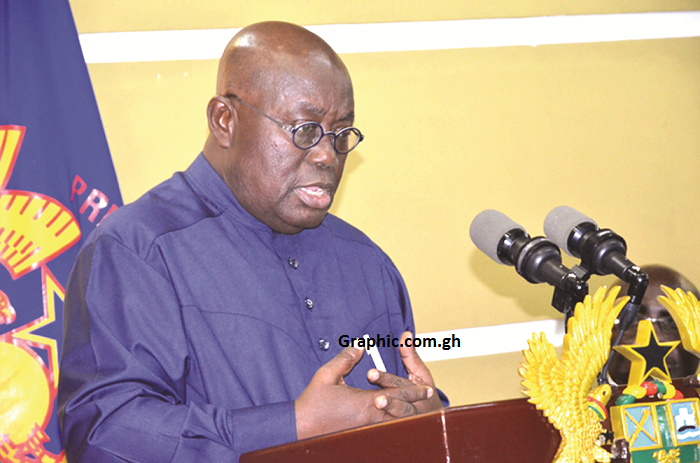Everything rises or falls on leadership. No organisation, no ministry, no church, no family, no school, no business can go any further than the leaders who are leading. Rick Warren.
The 1992 Constitution is definite about certain facts, some of which may not be acceptable to all the people. One of the facts is the provision which states that; “Ministers of State shall be appointed by the President with the prior approval of Parliament from among members of Parliament or persons qualified to be elected as members of Parliament, except that the majority of Ministers of State shall be appointed from among members of Parliament.”
This is one provision that has been criticised by well-meaning Ghanaians that it blurs the principle of separation of powers between the Executive and Legislature, as many members of Parliament (MPs) will look up to the Executive for ministerial appointment, especially where being a minister confers certain privileges and commands higher salary than being just an MP.
Left to such people, there must be a clear distinction between ministers of State and MPs to ensure the independence of the Legislature. But until the provision is amended, there is nothing that anybody can do to change the arrangement.
The same Constitution provides under Article 78(2) that; “The President shall appoint such number of Ministers of State as may be necessary for the efficient running of the State.” Similarly, Article 79(1) gives the discretion to the President by stating that; “The President may, in consultation with a Minister of State, and with the prior approval of Parliament, appoint one or more Deputy Ministers to assist the Minister in the performance of his functions.”
Relating to the Cabinet, the Constitution under Article 76(1) provides that; “There shall be a Cabinet which shall consist of the President, the Vice-President and not less than 10 and not more than 19 Ministers of State.”
Where the Constitution felt the need to limit the authority of the President, provisions were made to such effect but where the President was better placed to exercise judgement in running an efficient administration, no limit was imposed. Thus, in discussing the size of any government, we must not lose focus as to the legitimate processes. The question then as to whether the size of government is big or small is relative and dependent on who determines that. Therefore, we may argue on the size from within.
While 110 is by all standards big, we must not lose sight of the fact that even those governments which supposedly run lean governments had presidential spokespersons and staffers. If it is only about names, then we can agree that a minister of State is a minister of State. But if it is about numbers and salary, then we must accept that all those who have had some functions to perform for government are remunerated from the public purse. They must equally be counted and added so that we would begin to appreciate the sizes of our governments since 1993. It is also imperative to appreciate the fact that MPs are paid from the public purse and those who serve as ministers of State do not receive double salary.
As for those stretching the argument by comparing the size of our government to that of Nigeria and the United States of America (USA) in particular, they have to be sincere in their arguments. In those federal states, there are two-tier ministerial positions. There are those members of government at the state and federal levels. In those nations, the federal government performs limited functions that have to do with international relations. It is thus inappropriate to suggest that the federal ministers are the only ones who serve in ministerial positions for those countries. We have to do proper comparison for our people to have a better and more functional understanding of issues.
We must not forget that in this country, there was a time when our government considered agriculture so important that there was a deputy minister or whatever designation for agriculture in each administrative region, meaning that every region had two deputies. We need to evaluate the human resource needs of our governments to determine the number that will give value for money rather than the superficial argument as to whether 110 is a huge or deserved number.
For me, therefore, the issue should not be about the size of ministers of State, but the full number of political appointees serving under the Executive and the conditions of service available to them. If the same facilities and privileges extended to ministers of State are provided MPs, the talk about the number of ministers of State would pale into nothingness. We must thus fight for better conditions of service for MPs. We need an effective and efficient government since democracy after all is not cheap.

